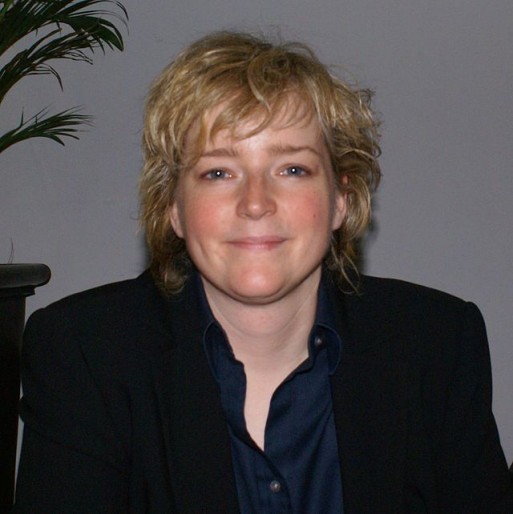
Credit: Wikipedia
“The Truth About Pretty Girls” is a salty and bitter story about how anger and grief can rule over the heart, even decades after someone has passed. Slaughter’s story comes to us as an audiobook exclusive in her collection, The Unremarkable Heart and Other Stories, which is dripping with honesty, dark humor, love and despair, thanks in part to the magnificent narration by Shannon Cochran.
Anger and grief can rule over the heart, even decades after someone has passed.
In this tale, we are introduced to Jude—a former (or so she says) beauty on the cusp of a midlife crisis. After learning of the death of her first husband, she must now take care of a teenage son that she effectively gave up as a baby. As Jude sets out to pick up her estranged son in the old Plymouth Duster she won in her recent divorce, she invites the reader into a passenger-seat view of all of the events in her life that have led up to the terrifying moment where she must confront her son, a stranger, whom she must now learn how to raise.
Our reaction to death can often change our outlook on life and the decisions that we make.
On the drive to the station where her son will be arriving, we learn of the intense feelings of abandonment that Jude has carried with her since the sudden death of her father when she was just 16. Before his death, her father was her champion and her friend, a man that could “give one little lift of his right eyebrow, and she would tell him her deepest, darkest secrets.” Like so many others who have lost a parent at a young age, her guiding light was extinguished at his passing, and she was blind to how she should proceed in her own life without him, and forever “waiting for someone to leave her, like her father had.”

Credit: Wikipedia
As she looks back on the choices she has made, and she thinks of the death of her father, we see how this long ago event has shaped many of her life choices. And this sentiment is echoed as the sudden news of her ex-husband’s death fosters a new opportunity for her to connect with a son that she had never felt strongly for. New feelings and questions arise as she remarks “that Paul [her son] was one year younger than Jude had been when Ed Fry [her father] had fallen dead in front of her eyes.” Hurriedly, almost excitedly, Jude struggles to understand her newfound longing to connect to this young stranger after years of living as a selfish child trapped in an aging woman’s body.
Like so many others who have lost a parent at a young age, her guiding light was extinguished at his passing, and she was blind to how she should proceed in her own life without him.
In this way, our reaction to death can often change our outlook on life and the decisions that we make. Death introduces us to our own mortality. It colors the relationships that we have with our own bodies as well as those we have with others. This is something that was not lost on me when my grandmother died of Alzheimer’s and I was suddenly aware of the smallest instances of forgetfulness in my own life as well as my mother’s. But the awareness that colors our choices after the death of a loved one can be both positive and negative. And just as we feel Jude’s relief as she looks at her son on the station platform and notices that “almost imperceptibly, his right eyebrow raised slightly, and Jude walked over,” so too can we find a way to turn the loss of one life into the beginning of something new.
Related SevenPonds Articles:
- The Excellent Film August: Osage County Underscores
- My Father’s Absence
- A Daughter Mourning a Father She Lost At a Young Age

 “The Truth About Pretty Girls” by Karin Slaughter
“The Truth About Pretty Girls” by Karin Slaughter


 “Help Me, Helen”
“Help Me, Helen”
 Recovering Cremation Remains After the Los Angeles Fires
Recovering Cremation Remains After the Los Angeles Fires
 “As Tears Go By” by Marianne Faithfull
“As Tears Go By” by Marianne Faithfull














